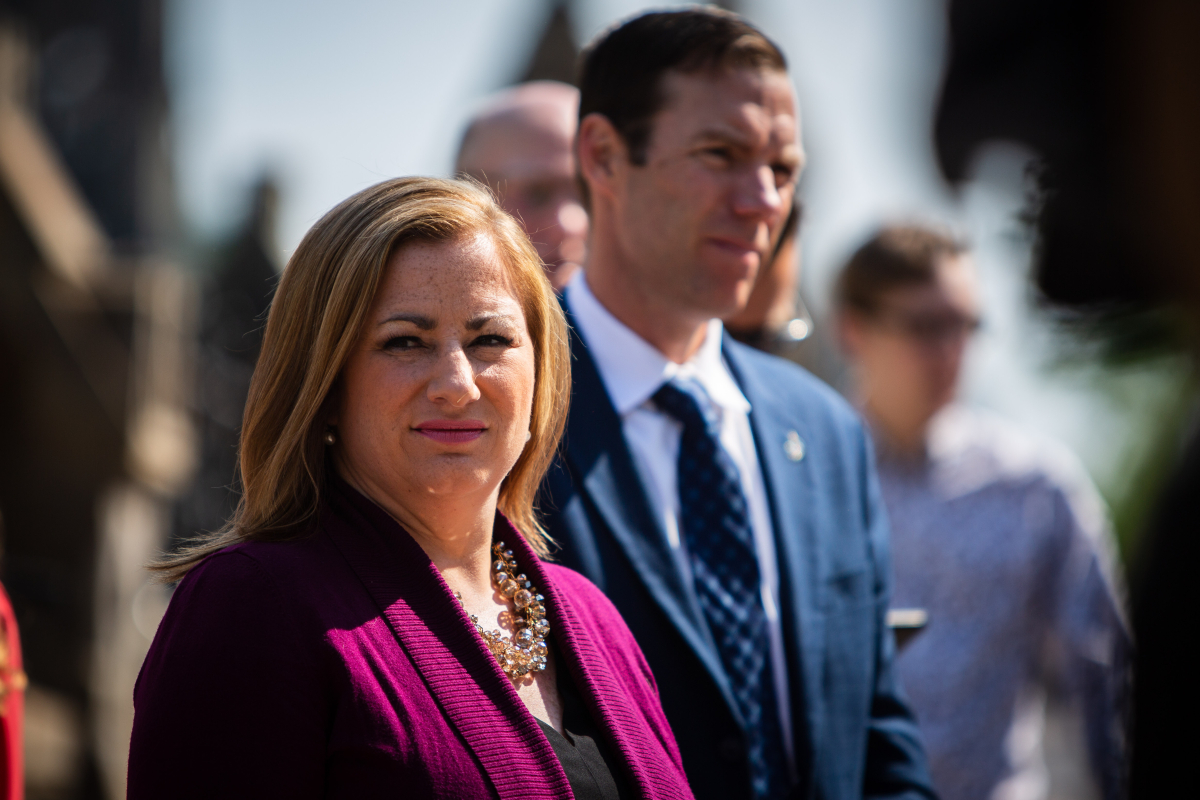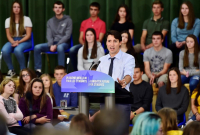Support strong Canadian climate journalism for 2025
Federal MPs on the natural resources committee were scheduled to meet Monday afternoon for an emergency session to discuss last week's game-changing court decision to tear up federal approval of the Trans Mountain pipeline expansion project.
The meeting comes at the request of the three Conservatives and one New Democrat MP who sit on the committee.
A federal court last week ruled consultation with Indigenous communities was not robust enough for the approval to be valid.
The court also said the National Energy Board hadn't properly considered the impact of an increase in oil tanker traffic off the coast of British Columbia that will result from an expanded pipeline.
The same day, Kinder Morgan shareholders voted to approve the sale of the existing pipeline and other assets to the federal government for $4.5 billion.
Conservative natural resources critic Shannon Stubbs says the government needs to explain whether it took into account the risk this court decision would come down as it did when deciding the only way to get the pipeline built in the presence of investor jitters was to nationalize it.
"It is a crucial question," Stubbs said Monday afternoon, as she got off a plane to Ottawa to attend Tuesday's meeting.
She is hoping the committee will issue calls for both Natural Resources Minister Amarjeet Sohi and Finance Minister Bill Morneau to appear before it to explain how everything went so wrong and what their plan is now to fix it, but it's unlikely any of those questions will be answered Tuesday.
It's not clear yet whether Canada intends to appeal the decision or will instead endeavour to complete the consultations and considerations the court said were lacking.
The Trans Mountain pipeline carries crude oil and some refined products between Alberta and the B.C. coast. Kinder Morgan applied to build a second pipeline parallel to the first that will triple the capacity, and Canada's hope is much of that oil would end up in Asian markets.
Canada's reliance on the United States for its oil exports decreases the price Canada can get for its oil, an amount Prime Minister Justin Trudeau himself says amounts to a $15 billion loss each year.
Ninety-nine per cent of Canada's oil exports go to the United States.




Comments
It is rather interesting to watch the pro-pipeline politicians and lobbyists twisting in the wind now trying to turn the court decision to their own benefit while at the same time throwing the blame on the Liberals when it was so many years of Conservative obeisance to the oil/gas lobby that turned the Tar sands into both a national disgrace and an economic boondoggle/sinkhole.
"Federal MPS ... were (not "was") scheduled ..."
"The Trans Mountain pipeline carries crude oil and some refined products between Alberta and the B.C. coast. " Since when Alex Tétreault ?
The court's decision is pretty simple really. Fudging the data, leaving out parts of the environmental concerns, reducing dialogue to one way 'information sessions' constitutes a flawed review process. The Liberals need to learn that just dressing better, talking more positivity on climate, and being photogenic nice guys, is no substitute for the actual process of a democratic review.
Thank goodness for an independent judiciary....now let's hear it, from ALL sides, for the Rule of Law!!
Trudeau is wrong - again. All the oil going to the USA could now be sent to Asia using the existing pipeline and tanker terminal. Why isn ‘t it? It is obvious that the puted higher price does not exist.
I sat in court today and listened to a lawyer representing BC Hydro explain how thoroughly vetted the Site C dam project was examined before approval. It was not send to the BC Utilities Commission like it should have been. It apparently complied with the Clean Air Act, which was a euphemism, at best. It was rammed through, bought off a few native bands, then continued on it's destruction of the Peace River Valley. Hydro claims that alternatives like thermal have not been tested. Why is that? Perhaps because governments keep subsidizing environmentally destructive projects. The NDP government actively worked against the project when in opposition, and have since flipped. I sat through the BCUC hearings and the consensus was it was an unnecessary project. But the report to the government didn't clearly state that. Do you suppose the process is fixed?
Great ! Despite Mr. Frump US is our best friend and customer. I don't get. Why '' reliance on US decreases the price Canada can get for its oil." We are lucky anybody will buy our dirty, dangerous, diluted BITUMEN. At one time 15 Upgraders were proposed in Alberta. Then some wise person said why don't we save money by thinning our thick bitumen with diluents like toxic, explosive Benzene. (see Lac Megantic, Kalamazoo, Line 9)
Why is Stephen Harper's full-out attack on Canada's environmental libraries and the desperate attempts of government scientists to protect the accumulated files of climate evidence not mentioned in this story?
And why is there mention of attempts at "reform" - of anything - by anyone in power since that incredibly destructive period when "progressive" was deleted from the very name of a party emulating the hard-nosed activity of conservatives south of the 49th?
Has that bloody-minded attack on attempts to preserve Earth for our children not been mentioned, recently, by anyone within hearing distance of Observer reporters?
More history/context, please, so that we are not reduced to the fairy tale situation facing readers served only by news media in thrall to the "Merchants of Doubt.."
The claim that future Asian markets will pay significantly more for diluted bitumen (dilbit) than existing U.S. markets is debunked in a Macleans Magazine opinion piece by David Hughes and elsewhere. Dilbit shipped from Alberta to Asia has higher refining and transport costs than oil from other sources. The federal government’s estimate of $15 billion in annual losses is grossly inflated now, and will shrink further as regulations tighten on sulphur content in bunker fuel.
Even if there was a lower cost per barrel in the U.S., what portion of it would “Canada” really lose? How much of the revenue would go to foreign shareholders, executive bonuses, and to more ill-advised fossil fuel infrastructure? What benefits would remain after accounting for the cost of oilsand tailing pond cleanup, droughts, fires, storms, floods, health effects, seawalls, and setbacks to indigenous reconciliation?